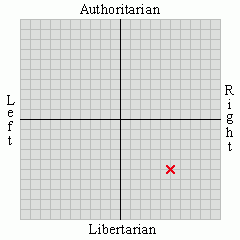UK Government backs Islamists in battle to remove their names from terror list
The Government is secretly supporting an attempt by UK-based Islamists to have their names removed from an international terror blacklist
The seven men were placed on the United Nations list because they were suspected of having links with al-Qaeda and the Taliban.
As a result they have been barred from leaving Britain and their assets have been frozen by the Bank of England and HM Treasury.
They include individuals who were:
* convicted of involvement in the 2003 Casablanca bombings and of possessing terrorist documents in the UK,
* accused of assisting the 1998 bombings of two US embassies in Africa and of being an associate of Osama bin Laden,
* found guilty by a military court of plotting terror attacks.
But an attempt by the men to have their names removed from the UN list has now won the backing of the Foreign and Commonwealth Office (FCO).
The FCO has insisted that it is acting because it has reviewed the men's cases and does not think they are dangerous.
Well, the secret's out now!
Other countries, it would seem, disagree with this request - the article explains why, and also tries to explain FCO's position.
One of the reasons given for removing the names from the list is that :-
... the UN is forcing the UK authorities to impose draconian restrictions on individuals.
Which sounds a bit like, "The big boys made me do it", but using a far more adult vocabulary. So the detention, freezing of assets etc was nothing to do with UK authorities, nothing at all. They had no choice, which is why these individuals now have government support.
Whatever happens next, and Mrs R hasn't a clue what it might be although she does know we really and truly can't afford to break friends with USA, she wonders if this request sets a precedent.
Some people who have been convicted of crimes can get government support to have their names removed from a list that says how bad they've been or how bad they might be.
So surely those who have not broken the law - people like this, or this, or those mentioned here - will be able to get their DNA and the analysis removed from the UK DNA database very quickly and very easily, because government will help them.
Is that likely to happen?
There are about five and a half million DNA samples, and their analysis, in storage within the UK database but :-
just 377 profiles were deleted in 2009 after appeals to police chiefs.
ECHR mentioned something about storing DNA, it said that :-
... keeping innocent people's DNA records on a criminal register breached article eight of the Human Rights Convention, covering the right to respect for private and family life.
In response UK said :-
(our DNA database is the biggest in the world, so we're better than everybody else.)... that other states have "not yet achieved the same maturity in terms of the size and resources of DNA databases."
But the ECHR said that :-
... the Government had a special duty for that reason.
Maybe "UK" is hoping the rest of the world will catch up and get their own DNA databases, but it will take a very long time because some countries have rather more pressing things on their minds.
One such country is Haiti, where the earth moved quite dramatically only a few days ago. The people there haven't got water to drink, they have no food to eat and no houses to live in - so freeze-storing DNA samples will be very low down their list of priorities.
Finally, let's compare the two sets of data.
Are there any differences?
- A long list of names of either known terrorists, or carefully profiled potential terrorists. The list is held, maintained and controlled by either UN or USA.
- A large collection of named, labelled, analysed, personal, DNA samples (many of which have been taken from children, witnesses or bystanders, or those never charged with an offence) that is held, maintained and controlled by UK.




